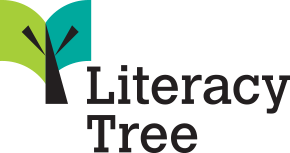The Richmond Curriculum
Our Curriculum Intent
It is our intent that, through a broad, balanced, inspiring and well-taught curriculum, pupils of Richmond Primary School will:
- Become confident, independent and life-long learners who are well equipped for the future as a British citizen
- Apply their skills, knowledge and understanding to everyday life
- Become successful citizens with a sense of pride in and awareness of the local community
- Have opportunities to explore their personal interests and character so that they grow as well-rounded people with respect, open-mindedness and inclusivity
- Develop a sense of self and others, understanding their own feelings and their impact on others
- Become curious, enquiring minds, who ask questions of themselves and the world
- Be confident to express their thinking orally within a range of situations
At Richmond, our curriculum has been developed considering the needs of our children alongside a desire to develop critical, creative, caring and collaborative thinking. We want our children to work closely with our wider community, learning from them and involving them in our learning. We want the learning to be purposeful and for our children to be discoverers, explorers, creators and leaders, enabling them to develop as life-long learners, successful in their chosen paths.
We believe curriculum enrichment is essential for children to learn, enjoy and achieve and ensure the curriculum has plenty of opportunities for memorable experiences, visitors to school and visits outside of school to support and inspire learning. Throughout each connected learning theme, children work towards a community focused outcome to showcase their learning within the community.
At Richmond, we follow the Statutory Framework for the EYFS and the National Curriculum. We connect our curriculum using umbrella learning themes within each year group. Within each subject, we ensure that there is progression of knowledge, and skills, across the year and also from Early Years to Year 6. We believe children learn better when they are encouraged to use their imagination and apply their learning to engaging contexts. Our curriculum will provide lots of learning challenges throughout the academic year that will require children to solve problems, apply themselves creatively and express their knowledge and understanding effectively across the curriculum.
For each of our learning themes, there is a ‘Big Question’ which children work towards answering over the course of the theme. These questions are open ended and allow children to gather knowledge and develop skills along the way. The question and the learning journey so far is referred to regularly in lessons and is reinforced by our ‘Know More, Remember More’ at the beginning of each session to support the retention of knowledge.

We believe in a high quality Oracy education and we aim to thread this throughout our entire curriculum. We know that spoken language skills are one of the strongest predictors of a child's future life chances and specifically teach Oracy skills to our children. As with all of our other subjects, Oracy is also mapped out across year groups and across the school to ensure progression.
We place a high importance on developing vocabulary and this is carefully planned for within each learning theme to ensure understanding and retention. Vocabulary is identified at the beginning of each learning theme and dual coded vocabulary mats are utilised to support learning. Knowledge is built upon through the progression of key vocabulary.
We are very proud to be a ‘No Outsiders’ school and we aim to provide a broad, balanced, creative and challenging curriculum for all pupils.
We use Literacy Tree to support the teaching and learning of Literacy at Richmond. This is a book based approach where children are immersed in high-quality literature alongside learning and developing the key skills and knowledge they need to be successful writers.

We use White Rose to support the teaching and learning of Maths at Richmond from Years 1-6. In Early Years, children learn to develop their early number sense through the Mastering Number programme which was developed by the NCETM.

We use Jigsaw to deliver the RSE and PSHE curriculum.
We use The Cambridgeshire Scheme of Work for Physical Education to support teaching and learning in PE.
We use The Leicestershire Music Hub to support the teaching and learning of Music at Richmond.
Early Years Foundation Stage
Please see below for information about the Characteristics of Effective Learning and the Curriculum Overview Progression Maps for Early Years. There is one for each of the seven areas of learning.
Please see our Connected Curriculum Overviews for Year Groups 1-6 for Spring 2 below.
Please see our Connected Curriculum Overviews for Year Groups 1-6 for Spring 1 below.
Please see our Connected Curriculum Overviews for Year Groups 1-6 for Autumn 2 below.
Please see our Connected Curriculum Overviews for Year Groups 1-6 for Autumn 1 below.

























